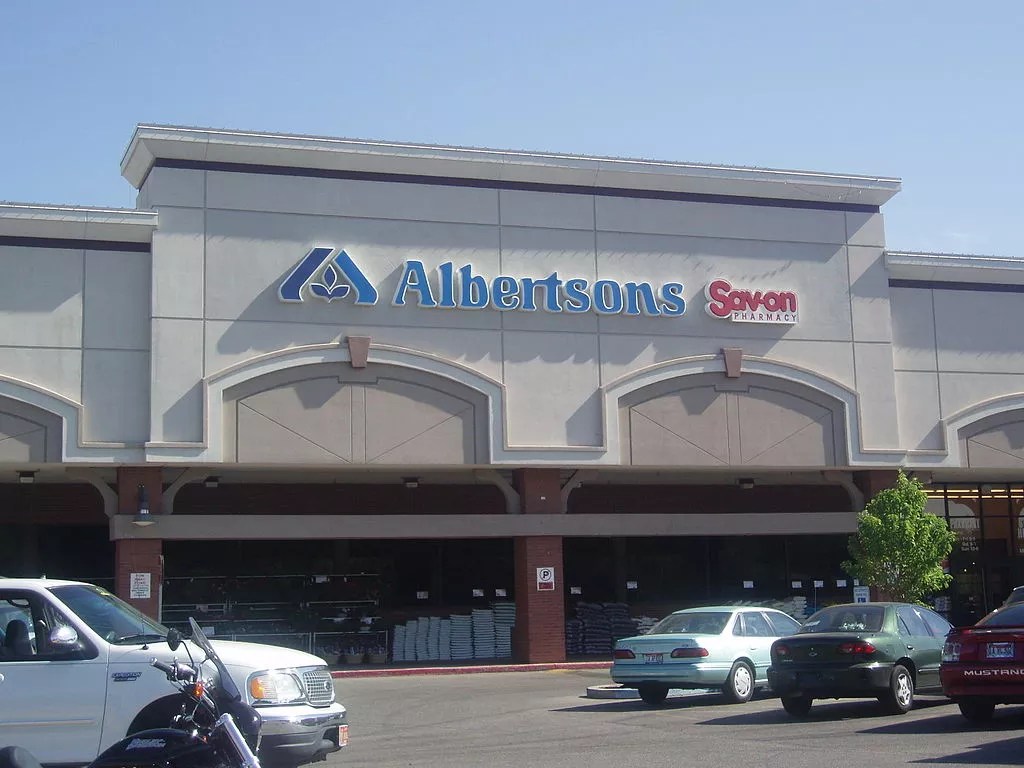
Caldorwards4, Wikimedia commons

Audio By Carbonatix
The proposed $24.6 billion merger between grocery giants Kroger and Albertsons was temporarily halted by a federal judge on Tuesday, following a two-year battle and a three-week trial.
By Wednesday, the companies seeking to merge quickly went from friends to enemies. Albertsons is suing Kroger for failing to do everything possible to see the deal through, and for breaching the contract.
The plan was for Kroger, which operates more than 2,700 stores nationwide, to acquire Albertsons, which runs over 2,200 stores.
Opponents of the proposal feared the merged company would control too much of the market share, leading to higher grocery prices, decreased wages and less bargaining power for workers. Kroger countered that it needed to buy Albertsons in order to strengthen itself against competitors such as Walmart, Costco, Target and Amazon.
Will you step up to support New Times this year?
We’re aiming to raise $30,000 by December 31, so we can continue covering what matters most to you. If New Times matters to you, please take action and contribute today, so when news happens, our reporters can be there.
Since its initial proposal in 2022, the merger was met with much resistance. In addition to the U.S. Federal Trade Commission case, Colorado Attorney General Phil Weiser and Washington Attorney General Bob Ferguson both challenged it in court.
Following the Oregon case on Tuesday, Ferguson won his case as a Washington state court judge in Seattle further blocked the deal.
Arizona Attorney General Kris Mayes has also worked to prevent the merger, citing the need to protect consumers from a grocery monopoly.
In efforts to calm these concerns, Kroger released a plan to divest in 579 stores nationwide, including selling 101 Safeway and Albertsons stores in Arizona to East Coast chain C&S Wholesale Grocers. However, following this week’s events, those sales will also be stopped.
The hearing took place in Portland, Oregon, under U.S. District Court Judge Adrienne Nelson. It was brought forward by the FTC, which asked Nelson to block the merger until an in-house administrative judge from the FTC could weigh in on the merger’s impacts.
On Tuesday, Nelson sided with regulators and her ruling paused the merger. Mayes released a statement on the ruling, calling it a “major victory for consumers, workers and small businesses across the country.”
“Here in Arizona, where countless communities rely on accessible, affordable grocery options, this decision helps ensure that residents won’t face the potentially devastating impacts of such a consolidation,” her statement says.
After the ruling, the case could have moved to the FTC. However, Kroger and Albertsons initially asked a different federal judge to block the in-house proceedings. By Wednesday, the companies had abandoned the deal altogether.
“Given the recent federal and state court decisions to block our proposed merger with Kroger, we have made the difficult decision to terminate the merger agreement. We are deeply disappointed in the courts’ decisions,” Albertsons CEO Vivek Sankaran said in a statement.
Albertsons is suing Kroger and seeking billions of dollars in damages, Reuters reported, plus a $600 million termination fee. Kroger has called it’s now-rival’s claims baseless.